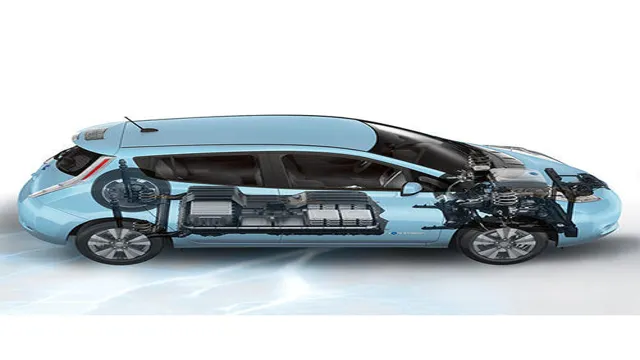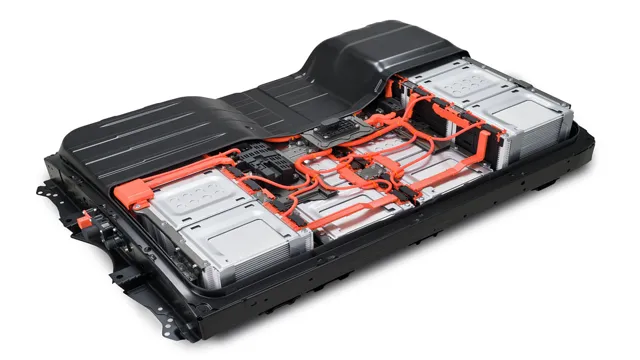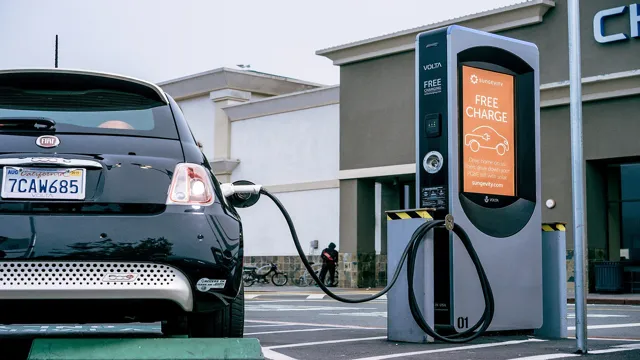The Shocking Truth Behind Electric Car Batteries: Are They Really Dangerous?
Electric cars are becoming increasingly popular due to their eco-friendliness and cost efficiency, prompting many car enthusiasts and tech-savvy individuals to consider buying them. However, safety concerns regarding the batteries used in these vehicles have emerged amidst electric car popularity. With many people asking, “Are electric car batteries dangerous?” the answer is not a simple yes or no.
There are certain risks associated with electric car batteries, just as there are with gasoline-powered vehicles. In this blog, we will explore the safety concerns surrounding electric car batteries and how they can be minimized. Let’s dive in!
What are Electric Car Batteries Made of?
Many people are curious about what electric car batteries are made of and if they are dangerous. While electric car batteries do contain some hazardous materials, the overall risk to drivers is quite low. Lithium-ion batteries are the most common type of electric car battery and are made up of a combination of lithium and cobalt.
The cobalt used in these batteries is often mined in parts of Africa under dangerous and unethical conditions, which can raise ethical concerns. Additionally, the electrolyte in the battery is a flammable liquid that has the potential to ignite if the battery is damaged or punctured. However, electric car batteries are designed with many safety features, such as firewalls and automatic shutoff mechanisms, to prevent fires and explosions.
It is important to note that while electric car batteries do require careful handling, the benefits of using electric cars, such as greatly reduced emissions, far outweigh any potential risks.
Lithium-ion vs. Nickel-Metal Hydride
When it comes to electric car batteries, there are two main types on the market: lithium-ion and nickel-metal hydride. Lithium-ion batteries are more commonly used because they are lighter and have a higher energy density, which means they can hold more power without taking up much space. Another advantage of lithium-ion batteries is that they charge faster than nickel-metal hydride batteries.
However, nickel-metal hydride batteries are still used in some hybrid and electric cars because they are more cost-effective and have a longer lifespan. The choice of battery used in electric cars is an important factor in determining the vehicle’s range, performance, and cost. Ultimately, the decision between lithium-ion and nickel-metal hydride batteries depends on the specific needs of the driver and the car.

Can Electric Car Batteries Explode?
Electric cars have become increasingly popular due to their environmental benefits and technological advancements. However, concerns surrounding their safety have also been raised, particularly with regards to the risk of battery explosions. But can electric car batteries really explode? The simple answer is yes, but it is important to note that the risk is very low.
Electric car batteries are designed with various safety features, including multiple layers of protection, such as thermal management systems, to prevent overheating and potential explosions. Furthermore, manufacturers conduct rigorous tests and simulations to ensure the safety and reliability of their batteries. While it is important to be aware of the potential dangers, electric car batteries are no more dangerous than traditional vehicle fuel tanks and should not deter people from considering the benefits of electric cars.
Rare Cases of Battery Fires and Explosions
Electric car batteries have been found to be highly safe but rare cases of battery fires and explosions have been reported. While electric car batteries are not likely to explode, incidents like Tesla Model S car fires in 2013 and 2019 have caused some concerns among car owners and potential buyers. Electric car batteries can catch fire when the lithium-ion cells within them are damaged or overheated, causing a chemical reaction that may lead to thermal runaway.
However, modern electric vehicle designs have built-in safety measures that include thermal management systems and sophisticated battery management systems that ensure adequate cooling and prevent overcharging. Moreover, regulations require manufactures to meet rigorous safety standards and undergo extensive testing before their vehicles are approved for the market. In conclusion, electric car batteries are highly safe and reliable and the benefits of going electric far outweigh the risks.
Safety Regulations and Testing Standards
Electric car batteries have gained a lot of attention lately, and with this, comes the concern with their safety. Some people believe that electric car batteries can explode, and this is not entirely inaccurate. However, the probability of such an occurrence is very low.
Manufacturers of electric vehicles must adhere to strict safety regulations and testing standards before introducing their products into the market. These regulations are put in place to ensure that electric car batteries are as safe as possible for the drivers and passengers. Furthermore, electric vehicle batteries have advanced safety features, such as thermal management systems and battery management systems, that prevent overcharging and overheating, which can lead to battery explosions.
All in all, electric car batteries are very safe, and the risk of an explosion is minimal.
How to be Safe with Electric Car Batteries
Electric car batteries definitely have the potential to be dangerous if handled improperly. However, there are a number of steps you can take to ensure your safety when using or working on these powerful energy sources. One key precaution is to always wear protective gear, such as gloves and goggles, when dealing with electric car batteries.
Additionally, you should make sure the battery is properly charged and maintained to prevent any malfunctions. It’s also important to be aware of any signs of damage or wear and tear on the battery, as this can increase the risk of accidents. By taking these simple but important steps, you can stay safe and enjoy the many benefits of electric car technology without worry.
Proper Handling and Disposal
Electric car batteries have revolutionized the automotive industry as they offer an eco-friendly mode of transportation. However, proper handling and disposal of these batteries are of great significance to ensure safety. Firstly, it is crucial to approach any damaged or malfunctioning battery with caution as it may possess a risk of electric shock or toxic substance leakage.
It is also essential to store these batteries in a cool and dry place, away from direct sunlight, and away from flammable substances. When it comes to disposal, you should never throw them in the trash but, instead, seek out recycling centers or authorized dealerships that will properly handle the batteries. Recycling involves extracting the valuable materials such as cobalt and nickel, which can be reused in other commercial products.
By taking the necessary precautions, we can ensure not only our safety but also promote sustainability by preserving the environment from hazardous e-waste.
Benefits of Regular Maintenance
Electric car batteries may seem daunting to maintain, especially for those who are new to the concept of owning and operating an electric vehicle. However, regular maintenance of these batteries is vital for their longevity and safety. A well-maintained electric car battery can last for years while ensuring the car’s optimal performance.
It is important to keep the battery at a safe temperature and charge it regularly, as overcharging or overheating can cause damage to the battery. Additionally, it is essential to schedule regular maintenance checkups with a qualified electric vehicle mechanic. Regular maintenance of an electric car battery can help prevent potential accidents and ensure the safety of the vehicle’s owner and passengers.
In conclusion, keeping up with battery maintenance is crucial for the longevity and safety of electric vehicles, and it is important to educate oneself on proper battery care and seek professional assistance when necessary.
Conclusion: Are Electric Car Batteries Safe?
Despite some concerns and fears about electric car batteries being dangerous, the truth is that the risk is actually lower than the standard gasoline-based vehicles. With modern safety features and regulations, the potential for explosions is highly unlikely and the batteries are well-protected. So, let’s charge forward towards a cleaner, smarter, and safer future with electric cars and leave the fear-mongering in the rearview mirror!”
FAQs
Are electric car batteries dangerous?
Electric car batteries are considered safe for everyday use. However, like any other battery, there is always a risk of fire or explosion if damaged or improperly handled.
How are electric car batteries disposed of?
Electric car batteries should not be disposed of in regular household garbage. Instead, they should be recycled or repurposed. Most battery manufacturers have programs in place to collect and recycle their products.
What is the lifespan of an electric car battery?
The lifespan of an electric car battery can vary greatly depending on factors such as usage, temperature, and charging habits. On average, electric car batteries can last anywhere from 8 to 10 years.
Can electric car batteries be recharged at home?
Yes, electric car batteries can be recharged at home using a charging station or a standard electrical outlet. However, it is important to follow the manufacturer’s guidelines for charging in order to prevent damage to the battery.




